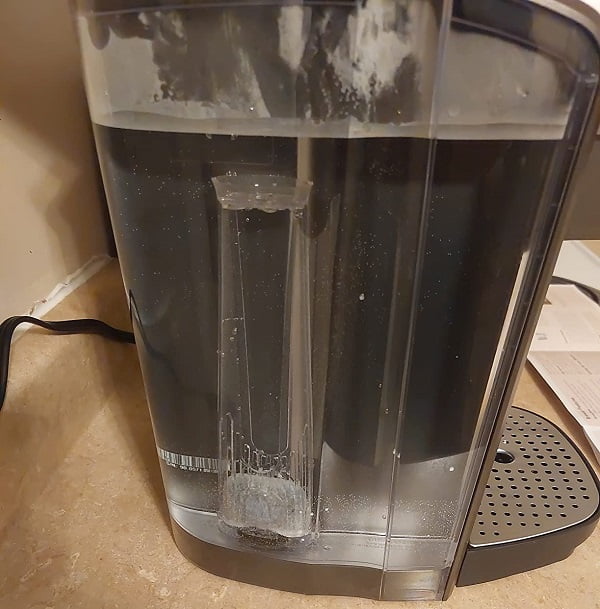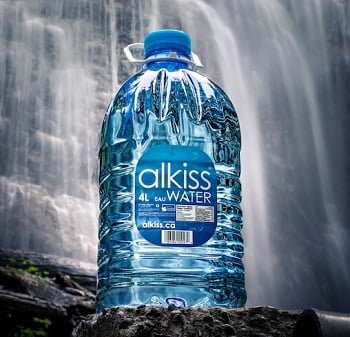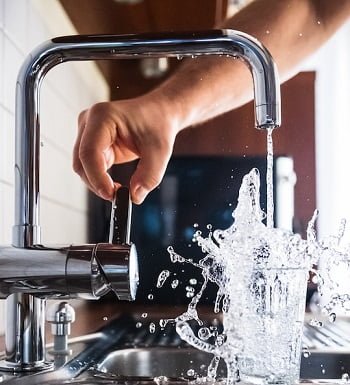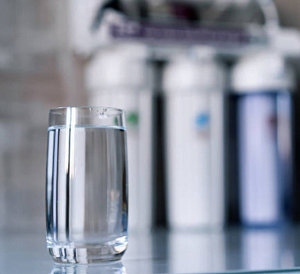The quality of water you use in your Keurig can significantly impact the quality of your coffee drink.
Bad water can easily ruin the taste of coffee. After all brewed coffee is 98% water.
It’s always a best practice to use filtered or bottled water in Keurig. As well as preparing the most flavorful cup of coffee, filtered water has the perfect amount of minerals, typically less than 100 ppm, which leads to less scaling inside the machine.
Using bad water in your Keurig coffee maker can shorten its lifespan. Minerals in hard water can cause scale build-up inside the machine, leading to clogs and leaks.

Key Takeaways
- Filtered Tap water or Bottled water is best for Keurig.
- Avoid distilled water in Keurig – as no mineral content makes the coffee less tasty.
- Hard water causes scale buildup and clogging over time inside the Keurig.
- Water filter cartridges inside the water reservoir help remove impurities and improve the taste.
What water to use in Keurig
Below are the four common types of water and why or why not they are a perfect fit for your Keurig.
Bottled Water
Bottled mineral water is perfect to use in a Keurig brewer.
Typically, bottled water brands offer consistent mineral and purity levels. This ensures that the water used in your Keurig machine makes consistently good coffee.
Not all bottled water is the same! You can use purified or filtered spring water containing some minerals. But don’t use distilled water in your Keurig.

Why can’t you use distilled water in Keurig?
Distilled water is a pure mixture of hydrogen and oxygen that goes through a boiling or reverse osmosis process to remove all the minerals.
Although distilled water is perfect for the machine and prevents the buildup of minerals but it’s still not perfect for brewing coffee.
As mentioned earlier, a trace amount of minerals is required for the perfect extraction of flavors from coffee beans and actually improve the flavors of your drink.
Moreover, some Keurig machines don’t allow you to make coffee using filtered water as they have sensors to detect mineral content in water.
And when you put the distilled water, the Keurig cannot detect the water level due to the lack of minerals and keeps saying “Add water”.
Tap water
Filling the water reservoir directly from the tap is the easiest way, but it can be problematic in some cases.
The quality of tap water varies from place to place. Some locations have better drinkable water while other locations have very bad quality water.
You can use tap water in Keurig if it’s drinkable and has less amount of minerals.
Do some research and find out whether the water in your area is good or not and how much mineral content it contains.
Never use undrinkable tap water in your Keurig machine (It’s obvious though! I don’t why I am saying that)

Filtered water
Filtered tap water is the best water to use in Keurig and certainly the most convenient and affordable option.
There are plenty of options for water filters that you can attach directly to your tap. Make sure you research the purity of your tap water before choosing a water filter as not all water filters are the same.

Why you should care about the water in Keurig?
The major concern with the water you are using in your Keurig is the hardness of the water.
Minerals in hard water, such as calcium and magnesium, accumulate inside the valves and tubing of Keurig coffee makers, which causes clogging and blockages inside the machine.
Generally, if the hardness is below 100 ppm, it is acceptable. And if the hardness is above 200 ppm it will require frequent descaling of the machine and can also seriously damage your machine. It can also make the taste of Keurig coffee burnt or bitter.
Don’t get me wrong here and don’t start using distilled water that is completely free from minerals to make coffee.
A trace amount of Minerals in water is useful in extracting flavors from coffee grounds and preparing a delicious cup of coffee.
Here are the standards of water from the Specialty Coffee Association:
- Total dissolved Solids (TDS) of 75-250 ppm
- Calcium Hardness 17-85 ppm
- pH of 6-8
Water filters for Keurig
If you are using tap water it is recommended to add the cartridge water filters inside the water reservoir of your Keurig.
These filters remove chlorine, calcium, and other impurities from the water, resulting in better-tasting coffee and a better-functioning machine.
Also Read: Do all Keurig have Water filters
Final Thoughts
I always recommend using filtered tap water in Keurig or any other coffee maker for optimal performance and delicious coffee.
I’d love to hear what type of water you use and any additional advice for maximizing flavor and minimizing scale buildup. Let me know in the comments!
FAQs
How Long Can You Leave Water In Keurig Reservoir
While it is safe to leave water in a Keurig for up to 2 days, it is best to use fresh water for each brew. This will help to ensure that your coffee is fresh and tasty, and it will also reduce the risk of bacteria growth and mineral buildup.
How Often You Should Descale Keurig?
It is recommended to descale Keurig once in every 3 to 6 months or after brewing 300 cups of coffee whichever comes first.
Descaling on time is very important for the proper functioning of the machine. Otherwise, minerals in water can cause scaling buildup that can damage your machine.
Is purified the same as distilled water?
No, Purified water and distilled water are not the same.
Purified water goes through a filtration process to remove contaminants like chemicals and heavy metals.
Beneficial natural minerals like calcium and magnesium are retained, so purified water has a better taste and is ideal for making coffee and drinking.
In contrast, distilled water involves boiling and condensing water to remove all impurities and dissolve minerals. This leaves pure H2O molecules without minerals, resulting in a bland taste.
Can you use milk instead of water in a Keurig?
No, you should never put milk in your Keurig coffee maker.
Keurig coffee makers are designed to brew coffee only using water. To make milk-based coffee drinks, heat and froth the milk separately and then add to black coffee brewed with a Keurig.




Appreciate the tip on avoiding hard water in Keurigs. I’ll have to try one of these filtered or bottled water suggestions as I get descale indicator only after a month sometimes.
You must be using real hard water. Get a good quality water filter if you love your machine otherwise it will break in few months.